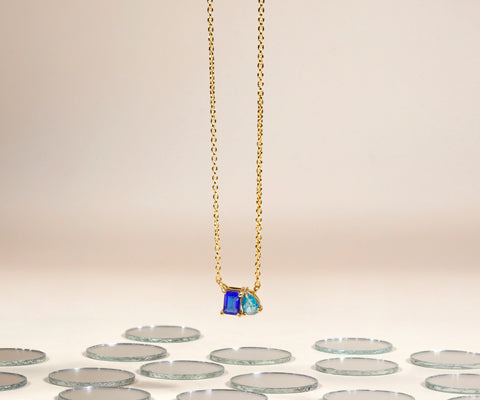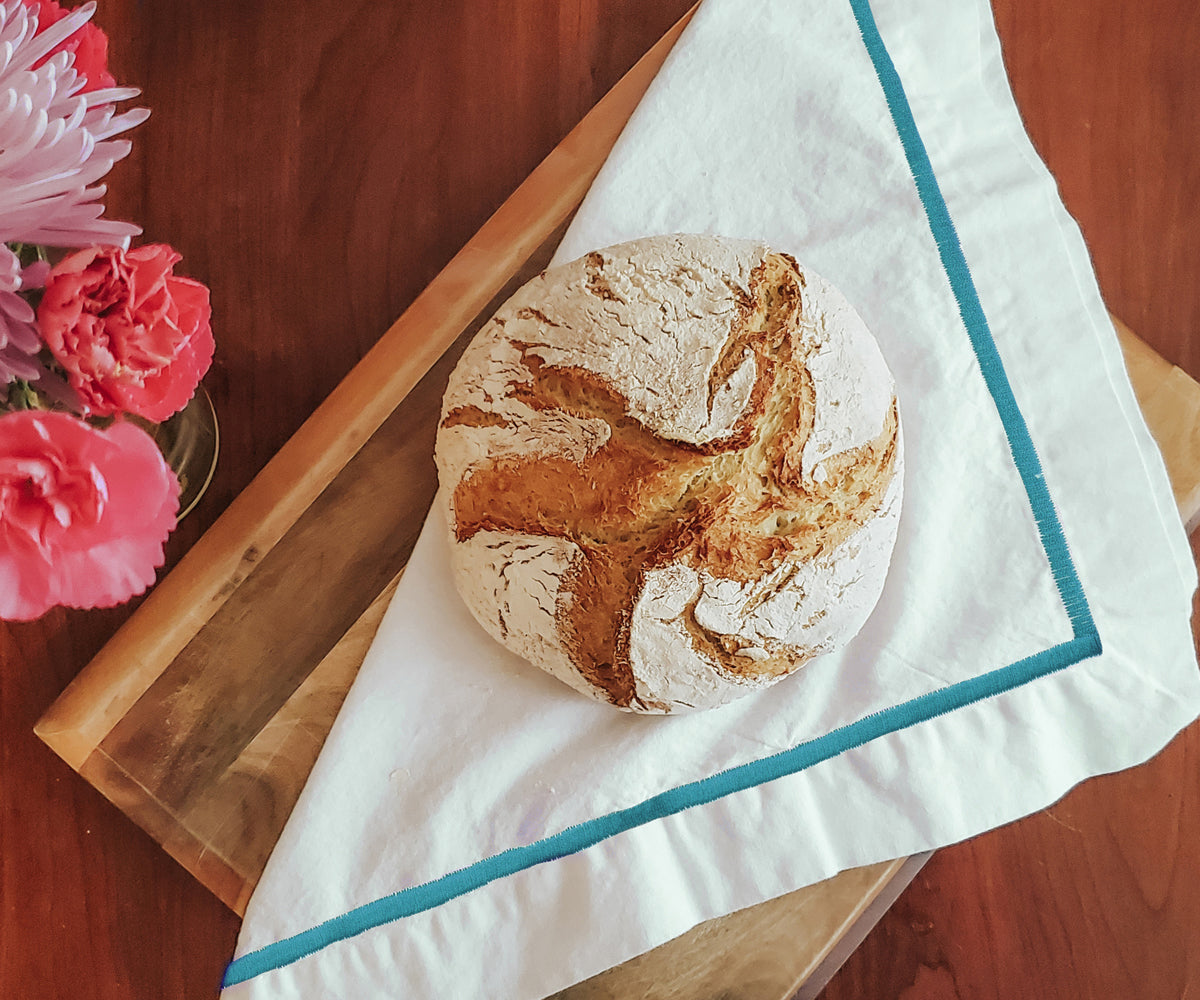Spring cleaning is a fantastic way to refresh your home after the winter months. It involves a deep clean that targets every corner of your house, removing dust, dirt, and clutter. Here's everything you need to know to make your spring cleaning efficient and effective.
What is Spring Cleaning?
Spring cleaning is an annual deep cleaning process that goes beyond regular housekeeping. Traditionally done in the spring, this thorough clean helps to clear out the dust and grime accumulated over the winter. It’s not just about making your home look good—it’s about making it a healthier and more organized place to live.
The idea behind spring cleaning is to start fresh as the seasons change. It involves cleaning areas of your home that might not get regular attention, like behind appliances or under furniture. This practice has historical roots in various cultures and was originally linked to preparing homes for warmer weather.
Why is Spring Cleaning Important?
Spring cleaning is important for several reasons:
- Health Benefits: Dust and allergens can build up in your home, leading to respiratory issues or allergies. A thorough spring cleaning helps reduce these health risks by removing dust, mold, and other pollutants from your living spaces.
- Improved Organization: Over time, clutter can accumulate in your home, making it harder to find things and less enjoyable to live in. Spring cleaning is an opportunity to declutter and organize your space, making it easier to find and use the things you need.
- Increased Home Value: Regular maintenance, including thorough cleaning, can help keep your home in good condition. This can be beneficial if you plan to sell your house, as a clean and well-maintained home is more attractive to potential buyers.
- Mental Well-being: Living in a clean and organized environment can positively affect your mental health. It reduces stress, enhances focus, and creates a sense of calm, making your home a more pleasant place to be.
Maintenance Tips for a Successful Spring Cleaning

- Create a Checklist: Start by making a list of all the areas in your home. Break down tasks into smaller sections to make them more manageable and less overwhelming.
- Prioritize Decluttering: Follow the "less is more" approach by getting rid of items you no longer use. This helps create a more organized and pleasant living space.
- Deep Cleaning: Pay attention to often-missed spots like baseboards, ceiling corners, and behind appliances to ensure a thorough clean and prevent dust buildup.
- Invest in Quality Cleaning Tools: Good cleaning tools, such as microfiber cloths and eco-friendly cleaners, make cleaning more effective and sustainable.
- Outdoor Cleaning: Don’t forget the outside of your home. Power wash the exterior, clean windows, and tidy up the garden to enhance your home's overall appearance.
How to Plan Your Spring Cleaning
Planning is crucial for a successful spring cleaning. Here’s how you can prepare:
- Set a Schedule: Choose a start date for your spring cleaning and plan the tasks you want to accomplish. Spread the work over a few days or weeks to avoid feeling overwhelmed. Mark your calendar to ensure you stick to the schedule.
- Create a Checklist: Make a list of all the cleaning tasks you need to tackle. Include both big jobs, like washing windows, and smaller tasks, like dusting light fixtures. A checklist helps ensure you don’t forget any important tasks and allows you to track your progress.
- Gather Supplies: Before you start, collect all the cleaning supplies you’ll need. This includes cleaning solutions, microfiber cloths, sponges, vacuum cleaner bags, and any specialty tools for deep cleaning. Having everything on hand makes the process smoother and more efficient.
- Enlist Help: If you live with others, get them involved in the cleaning process. Divide tasks among family members or housemates to make the work lighter and more manageable. It also helps make the cleaning process more enjoyable and less of a chore.
Key Areas to Focus On
Living Room
The living room is often a central space where dust and clutter accumulate. Focus on these tasks:
- Dusting: Dust all surfaces, including shelves, picture frames, and electronics. Use a microfiber cloth to trap dust and prevent it from spreading into the air.
- Vacuuming: Thoroughly vacuum carpets, rugs, and upholstery. Move furniture to clean underneath and get rid of hidden dust. Don’t forget to vacuum fabric-covered furniture like sofas and chairs.
- Decluttering: Sort through books, magazines, and other items that might be cluttering the space. Organize them neatly or remove anything you no longer need. This helps make the room feel more spacious and tidy.
Kitchen
The kitchen is one of the busiest areas in your home and needs a detailed clean:
- Appliances: Clean major appliances like the oven, refrigerator, and microwave. Remove crumbs and grease from these appliances to keep them functioning well. For the refrigerator, check and discard expired food items.
- Cabinets: Use kitchen towels to wipe down the fronts of cabinets and clean out the pantry. Organize food items and use the towels to clean any spills or stains inside the cabinets.
- Countertops: Sanitize countertops and sinks to remove bacteria and stains. Use a suitable cleaner for the type of countertop you have, whether it’s granite, laminate, or another material.
Bedrooms
A clean bedroom creates a restful environment. Focus on:
- Changing Bedding: Remove old bed linens, pillowcases, and comforters. Wash them according to the manufacturer’s instructions and replace them with fresh, clean bedding.
- Organizing Closets: Sort through your clothes and other items in the closet. Donate or discard items you no longer wear. Organize remaining clothes to make it easier to find what you need.
- Dusting: Dust all surfaces in the bedroom, including bedside tables, lamps, and dressers. Use a microfiber cloth to effectively trap dust and reduce allergens.
Bathrooms
Bathrooms can be a hotspot for germs and mildew, so it’s essential to:
- Scrub Surfaces: Clean the shower, bathtub, toilet, and sink thoroughly. Use appropriate cleaners for each surface to remove soap scum, stains, and bacteria.
- Clean Grout: Apply a grout cleaner to remove stains and mildew from grout lines. This helps maintain the appearance and hygiene of your tile surfaces.
- Replace Towels: Wash bath towels and washcloths. Replace them with fresh, clean towels to keep your bathroom looking and feeling fresh.
Windows and Doors
Clean windows and doors to improve the appearance and light in your home:
- Windows: Use a glass cleaner or a mixture of water and vinegar to clean windows. Ensure you clean both the inside and outside of the windows for a clear view. Don’t forget to wash the curtains once a month to complete the fresh, clean look.
- Doors: Wipe down doors and door frames to remove smudges and fingerprints. Pay attention to high-touch areas like handles and knobs.
Tips for Effective Spring Cleaning
- Use Natural Cleaners: Choose eco-friendly cleaning products to avoid harsh chemicals. Natural cleaners are safer for your health and the environment.
- Work From Top to Bottom: Start cleaning higher areas, such as shelves and light fixtures, and work your way down. This method ensures that dust and debris fall to areas you’ll clean later, preventing you from having to redo work.
- Tackle One Room at a Time: Focus on one room before moving on to the next. This approach helps you stay organized and ensures that each area gets the attention it needs.
- Stay Motivated: Play upbeat music or set a timer to keep yourself motivated. Having a plan and breaking tasks into smaller steps can make the process more enjoyable.
Spring cleaning is an excellent opportunity to refresh your home and make it a healthier, more organized place. By following these tips and focusing on key areas, you can ensure that your home is ready for the new season. With a bit of planning and effort, you’ll enjoy a clean and inviting living space that enhances both comfort and well-being.
Related Readings
- 10 Tips for a Cleaner Home - House Beautiful shares practical tips for keeping your home spotless.
- How to Deep Clean Your Kitchen - Good Housekeeping offers a step-by-step guide to deep cleaning your kitchen.
- The Ultimate Guide to Cleaning Your Bathroom - Better Homes & Gardens provides detailed instructions for bathroom cleaning.
- Organizing Your Closet: Tips and Tricks - Oprah Magazine gives advice on organizing and decluttering your closet.
- How to Effectively Dust Your Home - Martha Stewart's guide on dusting to keep your home allergen-free.












